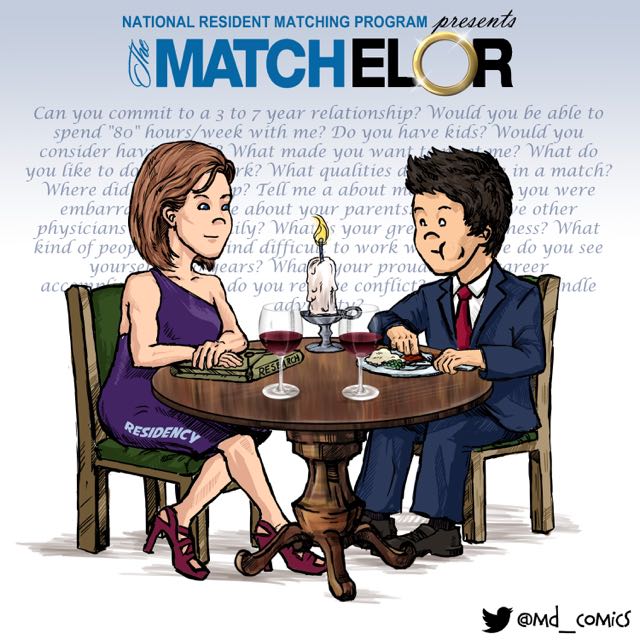David Yu, comic creator and medical student at University of Washington School of Medicine, recently matched into general surgery at University of Texas at Houston. Today, he enlightens us with tips and tricks for getting through medical school.
Tell us about yourself.
David Yu: Haha! I’ve got this question down pat from interviews. I grew up in Colfax, WA, a small town nestled in the Palouse area of Washington State and known for its rolling hills of wheat. From there, I attended Yale University where I majored in biomedical engineering and spent a summer studying abroad in Beijing and Mongolia before attending the UWSOM. I have been fortunate to have done rotations in five states, where I not only had a diverse hospital exposure, but also incredible non-clinical adventures like dog-mushing, watching the Aurora Borealis and escaping a family of bears.
Looking back on your medical school experience, what would you say to the young and naïve “first-year you”?
DY: Don’t forget to always allot time for rest, exercise, eating well and catching up with non-medical school friends. It is so easy to put these things off during the stress of school, so write them down and stick to it. Realize if you’re struggling, and be humble enough to ask for help, whether it’s from the counseling office, mentor or close family/friend.
What tips do you have for USMLE?
DY: Figure out your learning style and stick with it. Do you read well, or do you need repetition through questions or drawing tables and charts? Not everyone is a First Aid plus Q-bank robot. Not everyone studies well in groups or uses DiT/Kaplan well. Try not to over-resource and recognize that burnout is real.
What advice do you have for the students going through clinical rotations?
DY: Try to tailor your shelf exam studying to match what you saw in clinic that day. For example, if you had a patient with small bowel obstruction, adjust your studying that night to the small intestine and GI pathology. That will make the information more relevant, and stick better in your memory.
What recommendations do you have for medical students to maintain their sanity?
DY: Find a combination of indoor/outdoor hobbies that you can readily rely on. For me, it was drawing/cooking and hiking/intramural sports.
How did medical school differ from your expectations?
DY: I didn’t expect to play an integral role in patient care during my clinical years, nor did I expect my personality and relationships with my colleagues and family to change to the extent that it did due to working with patients. The doctor-patient relationship is truly unique and can fundamentally change one as a person.
What things did you do during your four years of medical school that you believe particularly impressed your residency program?
DY: Two things: (1) introspection/self-improvement as reflected in my academic improvement over time and letters of recommendation (2) a balance of experiences — rotating at a VA, university medical center, community hospital, military hospital, and medical related hobbies (such as medical cartooning), which showed well-roundedness and an ability to adapt.
What attracted you to your chosen specialty?
DY: I love the hands-on aspect surgery — the same reason that drew me to art and engineering in college. I also appreciate the academic, cerebral part of surgery that embodies the best parts of internal medicine, and still allows me to take care of the complete patient.
What is your biggest fear about beginning residency?
DY: Surgery is a very technical skill-based residency. I am very aware of areas where I still need work, and the concept of failing to perform those tasks in a stressful situation, whether it be placing an emergent arterial line, assisting in an exploratory laparotomy or botching a closure give me concern. These are the reasons why I practice in my spare time and why residencies run simulations and provide support from senior residents and attendings.
What advice would you give third year students about to start the Match process?
DY: Be generous with the first round (selecting which programs to apply) and don’t give yourself a hard cap. Compared to the costs of interview travel, the application step is relatively insignificant. Ask yourself what kind of program you’re searching for: academic vs community vs hybrid. Apply broadly in terms of geography if possible. Have an advisor/older colleagues look at your list.
And a fun bonus question! Please share an easy and quick recipe that got you through tough weeks in medical school.
DY: Kimchee mac and cheese — a lovely combination of a creamy comfort food classic with a crunchy, tangy, funky surprise layer in the middle.
I like to use a standard cheese sauce (butter, flour, milk, nutmeg, shredded cheddar or whatever your preference) to combine with my pasta (elbow macaroni) but you can honestly even use a boxed mac and cheese. Pour a half inch layer of mac and cheese in a baking dish, top with kimchee, top with another half inch of mac and cheese. Top with your favorite garnish (I like a mix of panko, chives, and French onions).




